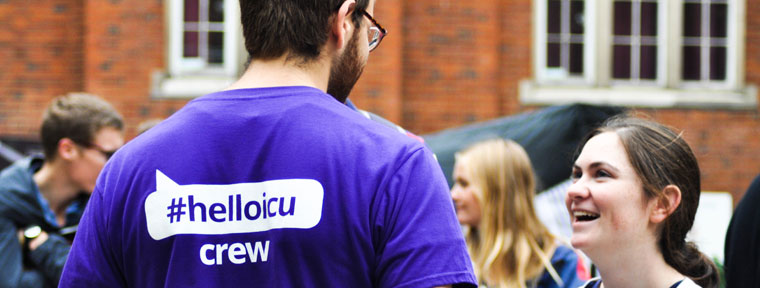Constituent Unions
When Imperial College London was founded in 1907, it was through the merger of a number of smaller scientific & engineering teaching institutions. When these institutions united into one College, their students' unions also came together - becoming Imperial College Union. Many decades later, Imperial College London absorbed several medical schools, and their students' unions were also merged into Imperial College Union.
The distinctions between the different schools, and their diverse areas of research and teaching, can be seen in the College as the Faculties of Science, Engineering, and Medicine. In Imperial College Union, they live on as the 'Constituent Unions', of which there are six. The Constituent Unions are fully integral parts of Imperial College Union, collectively forming a single organisation. Each Constituent Union has its own President, its own executive, and supports its own events, clubs and societies, as well as collaborating with the Academic and Wellbeing Representation Networks.
Unique to Imperial amongst students' unions in the United Kingdom, our Constituent Unions maintain the rich history and independent identities of the various communities within the wider Imperial student body. Each Constituent Union has its own set of historic mascots and traditions, as well as healthy rivalries with each other, all of which are familiar to Imperial students to this day.
City & Guilds College Union
The City & Guilds College Union (CGCU) represents Undergraduate students in the Faculty of Engineering, except those in the Department of Materials and the Department of Earth Science & Engineering. The CGCU was originally the student community of the City & Guilds Institute, which was founded in 1878 by the City of London and several livery companies to pioneer a system of technical education across the United Kingdom.
The CGCU's mascots are:
- Bolt (a 68lb foot-long bolt mounted on concrete)
- Spanner (a 64lb solid bronze spanner that fits the bolts of London Bridge)
- Boanerges, known as Bo' - a 1902 James and Brown automobile, possibly the last one of its kind
- Derrick, a 1926 Ner-a-Car motorcyle
Graduate Students' Union
The Graduate Students' Union represents all Taught and Research Postgraduates across Imperial College London. The GSU President receives an annual stipend from the Graduate School to enable them to dedicate up to two days a week to their role.
Imperial College School of Medicine Students' Union
The ICSMSU represents undergraduate students in the Faculty of Medicine, including Biomedical Sciences students. It was founded from the merger of the students' unions of the Charring Cross & Westminster, Royal Postgraduate, and St Mary's Hospital Medical Schools between 1988 and 1997 as they each became part of Imperial College London.
The ICSMSU's mascot is the Phoenix, holding a blue fleur-de-lis in its right foot (for St Mary's) and a red cross in its right foot (for Charring Cross). The Phoenix is represented at ICSMSU events by the Phoenix Suit, worn by the braver ICSM students at inter-Constituent Union sports fixtures.
Royal College of Science Union
The Royal College of Science Union (RCSU) represents all Undergraduate students in the Faculty of Natural Science. Founded in 1881 alongside the Royal College of Science itself, legend has it that science fiction writer HG Wells was its first student leader.
The RCSU's mascots are:
- Theta, a 100lb+, seven-foot-long stainless steel thermometer. The current Theta is Theta IV, as Thetas I - III have been lost to history through mascotry
- Jezebel, a 1916 Dennis 'N' Type fire engine that saw action in Zeppelin raids on London in the First World War and gets four miles to the gallon
Royal School of Mines Union
The Royal School of Mines Union (RSMU) represents all Undergraduate students in the Department of Materials and the Department of Earth Science & Engineering. The Royal School of Mines was founded in 1851 as an institution dedicated to geology and metallurgy. The RSMU dates back to at least 1902, when the first Varsity match against the Camborne School of Mines was played, an intense rivalry that lasts to this day.
The RSMU's mascots are:
- Clementine II, a 1926 Morris 'T' type truck purchased by the RSMU in 1960
- Davy II, a 132lb, three-foot-tall mining lamp made of brass and aluminium.
Silwood Park Students' Union
The Silwood Union represents students based at the Silwood Park campus, which focuses on ecology, evolution and conservation. As these students are distant from the main South Kensington campus, the Silwood Union organises local events and activities for their members.

